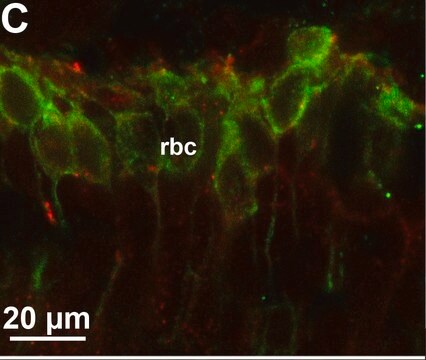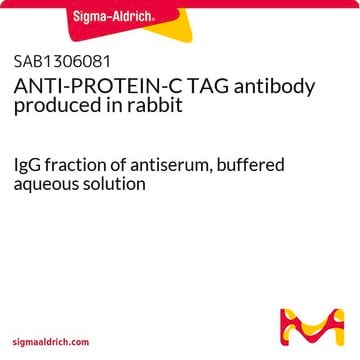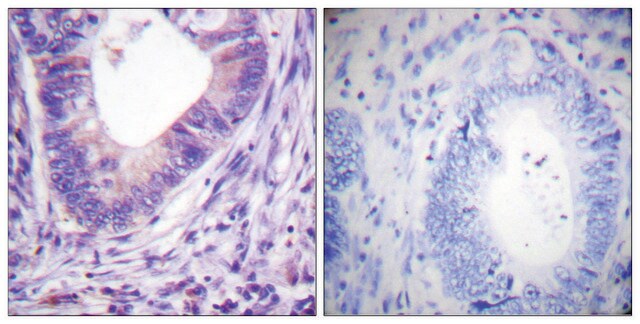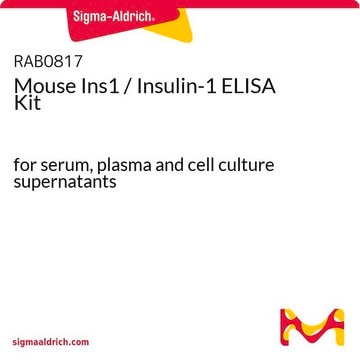Fontos dokumentumok
P5704
Monoclonal Anti-Protein Kinase C (PKC) antibody produced in mouse
clone MC5, ascites fluid
Szinonimák:
Monoclonal Anti-Protein Kinase C, Anti-PKC
About This Item
IHC (f)
IP
WB
immunoprecipitation (IP): suitable
microarray: suitable
western blot: 1:500 using rat brain cytosol preparation
Javasolt termékek
biológiai forrás
mouse
Minőségi szint
konjugátum
unconjugated
antitest forma
ascites fluid
antitest terméktípus
primary antibodies
klón
MC5, monoclonal
molekulatömeg
antigen 80 kDa
tartalmaz
15 mM sodium azide
faj reaktivitás
rat, bovine, mouse, human
technika/technikák
immunohistochemistry (frozen sections): suitable
immunoprecipitation (IP): suitable
microarray: suitable
western blot: 1:500 using rat brain cytosol preparation
izotípus
IgG2a
UniProt elérési szám
kiszállítva
dry ice
tárolási hőmérséklet
−20°C
célzott transzláció utáni módosítás
unmodified
Géninformáció
human ... PRKCB(5579) , PRKCZ(5590)
mouse ... Prkcb(18751) , Prkcc(18752)
rat ... Prkcb(25023) , Prkcg(24681)
Looking for similar products? Látogasson el ide Útmutató a termékösszehasonlításhoz
Általános leírás
Egyediség
Immunogén
Alkalmazás
Jogi nyilatkozat
Nem találja a megfelelő terméket?
Próbálja ki a Termékválasztó eszköz. eszközt
Tárolási osztály kódja
10 - Combustible liquids
WGK
WGK 3
Lobbanási pont (F)
Not applicable
Lobbanási pont (C)
Not applicable
Válasszon a legfrissebb verziók közül:
Analitikai tanúsítványok (COA)
Nem találja a megfelelő verziót?
Ha egy adott verzióra van szüksége, a tétel- vagy cikkszám alapján rákereshet egy adott tanúsítványra.
Már rendelkezik ezzel a termékkel?
Az Ön által nemrégiben megvásárolt termékekre vonatkozó dokumentumokat a Dokumentumtárban találja.
Az ügyfelek ezeket is megtekintették
behavioral ability and analgesic effects on rats with neuropathic
pain and expression of protein kinase C in the spinal dorsal horn
Tudóscsoportunk valamennyi kutatási területen rendelkezik tapasztalattal, beleértve az élettudományt, az anyagtudományt, a kémiai szintézist, a kromatográfiát, az analitikát és még sok más területet.
Lépjen kapcsolatba a szaktanácsadással

















